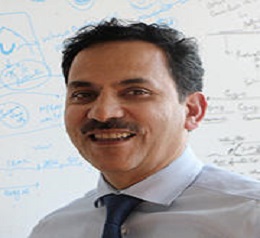Scholars International Webinar on
Cancer Research and Therapeutics
THEME: "Current Perspectives and New Challenges in Cancer Research and Therapy"
 23-24 Nov 2021
23-24 Nov 2021  ONLINE & VIRTUAL
ONLINE & VIRTUAL THEME: "Current Perspectives and New Challenges in Cancer Research and Therapy"
 23-24 Nov 2021
23-24 Nov 2021  ONLINE & VIRTUAL
ONLINE & VIRTUAL 
Harvard Medical School, USA
Title: Gene Edited and Engineered Cell based therapies for Cancer: From Bench to Bedside
Dr. Shah is the Vice Chair of Research at BWH
and an Associate Professor at Harvard Medical School. He is also the Director
of the Center for Stem Cell Therapeutics and Imaging at BWH and the joint
Center of Excellence in Biomedicine with KACST and BWH. He and a Principal
Faculty at Harvard Stem Cell Institute in Boston. Dr. Shah and his team have
pioneered major developments in translational cell therapy field, successfully
developing experimental models to understand basic cancer biology and
therapeutic cells for cancer. These studies have been published in a number of
very high impact journals. Previously, Dr. Shah's translational stem cell work
has caught the attention in the public domain and as such it has been
highlighted in the media world-wide including features on BBC and CNN.
Recently, Dr. Shah’s laboratory has reverse engineered cancer cells using
CRISPR/Cas9 technology and utilized them as therapeutics to treat cancer. This
work was published in journal Science Translation Medicine and highlighted
world-wide including features on Scientific American, New York Times and
Scientific American. Dr. Shah holds current positions on numerous councils,
advisory and editorial boards in the fields of stem cell therapy and oncology.
In an effort to translate the exciting therapies develped in his laboratory
into clinics, he has founded two biotech companies whose main objective is the
clinical translation of therapeutic stem cells in cancer patients.
Cell based therapies are emerging as a promising strategy for cancer. We have developed cell
surface receptor targeted adult stem cells, cancer cells and T cells expressing novel bi-functional
immunomodulatory proteins. Using our recently established tumor models that mimic clinical
settings, we have explored the fate and efficacy of different engineered cell based therapies. Our
findings demonstrate the strength of using innovative approaches and clinically relevant
preclinical models that pave a path for clinical translation. This presentation provides data and
rationale for assessing combined cell based studies in preclinical studies and translating the most
promising studies into the clinic.